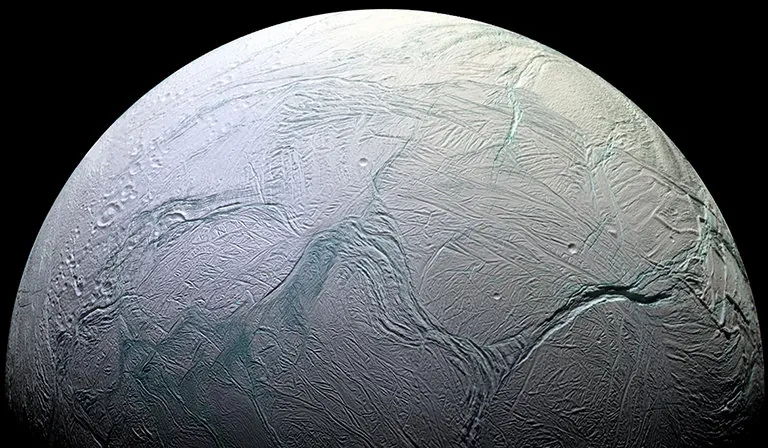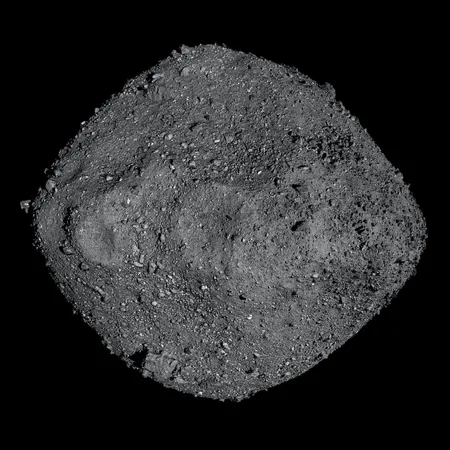
Life on Enceladus? The Water Beneath the Ice Holds Promise!
2025-08-29
Author: Arjun
At first glance, Enceladus—one of Saturn's moons—might seem uninteresting. Smaller than Earth's moon and fully encrusted in ice, it hardly captures the imagination. But beneath that frozen surface lies a hidden ocean of liquid water, igniting hope in the search for extraterrestrial life.
Astrobiologist Nozair Khawaja from the Free University of Berlin leads a groundbreaking research team that believes "where there is water, life is possible." Soon, they will kick off experiments designed to recreate conditions similar to those on Enceladus to explore what chemicals may be forming beneath the ice.
A Game-Changing Discovery
Saturn, the solar system's sixth planet, has long been deemed a sparse region for life. By previous standards, the area beyond Mars seemed too cold and too dark for life to thrive. However, the groundbreaking discovery of liquid water on Enceladus has turned those theories upside down. It was in 2005 that scientists first observed water jets erupting from the moon's south pole, confirming the presence of a subsurface ocean.
Signs of Life or Simply Chemistry?
Analysis of the ejected ice particles revealed a treasure trove of organic molecules, ranging from simple compounds to complex carbon-based molecules. Khawaja describes this as a monumental find, marking the first time scientists have detected large organic molecules in an extraterrestrial ocean. This discovery stirs the question: could these organic compounds hint at biological processes on Enceladus?
However, there's an alternative explanation: these molecules could result from hydrothermal reactions occurring deep beneath the ice layer. To investigate this potentiality, Khawaja's lab will simulate the moon's subsurface conditions to understand what might be unfolding under Enceladus's icy shell.
What If We Discover Life?
Finding microbial life on Enceladus would not only be a monumental milestone but could also spark hope for the existence of life elsewhere in the universe. It opens the door to possibilities of environments capable of supporting human-like life forms in the distant future. Yet, before sci-fi fans get too excited, Khawaja delivers a dose of reality: the research is squarely focused on simple life forms, like bacteria. Forget the fantasies of little green men living in ice-capped cities—this search is much more about understanding life's most basic forms.



 Brasil (PT)
Brasil (PT)
 Canada (EN)
Canada (EN)
 Chile (ES)
Chile (ES)
 Česko (CS)
Česko (CS)
 대한민국 (KO)
대한민국 (KO)
 España (ES)
España (ES)
 France (FR)
France (FR)
 Hong Kong (EN)
Hong Kong (EN)
 Italia (IT)
Italia (IT)
 日本 (JA)
日本 (JA)
 Magyarország (HU)
Magyarország (HU)
 Norge (NO)
Norge (NO)
 Polska (PL)
Polska (PL)
 Schweiz (DE)
Schweiz (DE)
 Singapore (EN)
Singapore (EN)
 Sverige (SV)
Sverige (SV)
 Suomi (FI)
Suomi (FI)
 Türkiye (TR)
Türkiye (TR)
 الإمارات العربية المتحدة (AR)
الإمارات العربية المتحدة (AR)